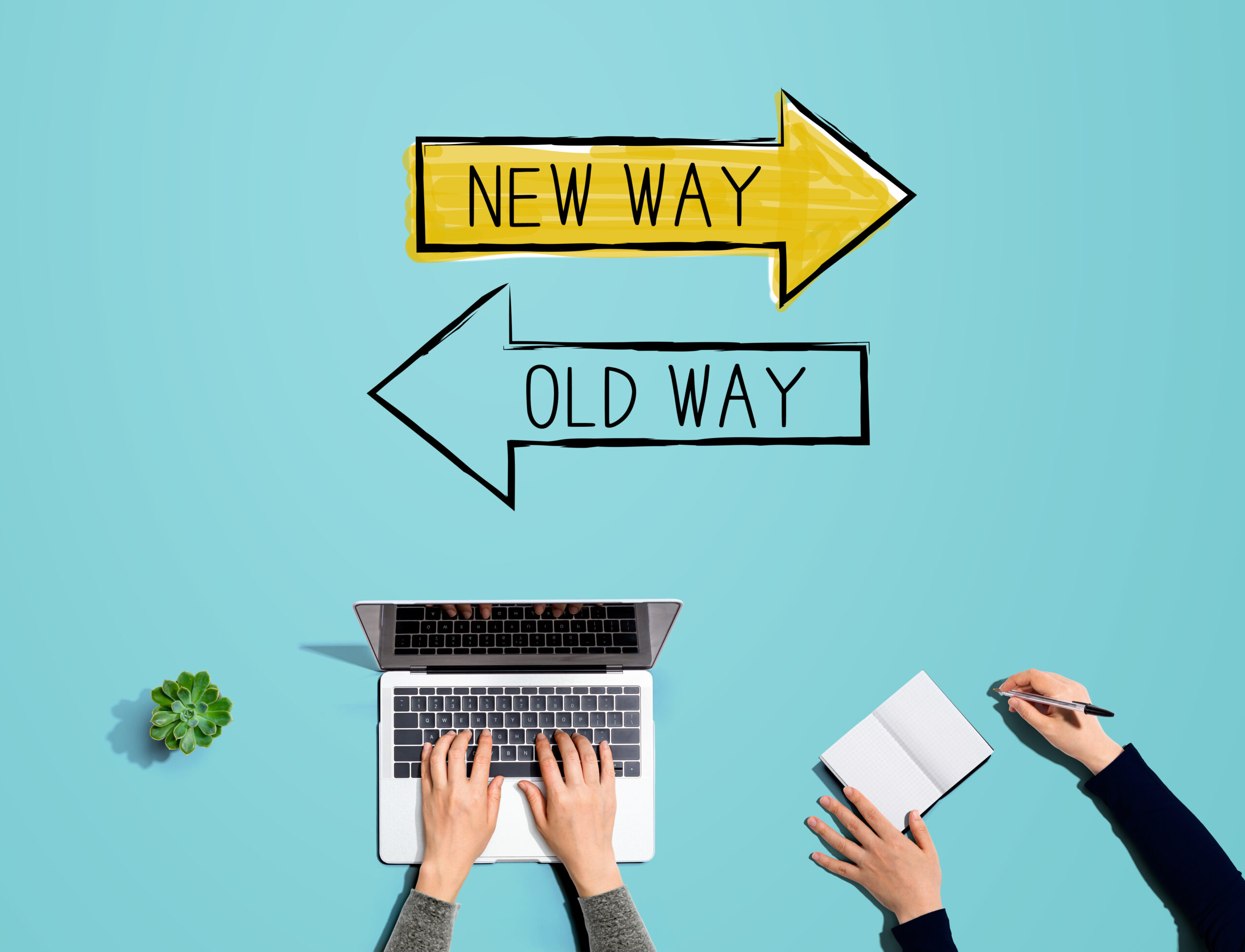Are you lucky enough to have one, perhaps several people you can turn to when you want to hash out a concern? Chances are these companions engage with you easily and completely. They listen intently, care about what you’re saying, and respond objectively, yet keyed to who you are and your needs. What a blessing. They have a certain knack, a gift to be treasured. It’s called “empathy.”
Empathy is “both a trait and a skill.” An all-encompassing way of being, of interacting with the world, it’s an always-on mindset that functions across all facets of our lives.
There are many dimensions of empathy. And there are just as many, if not more, benefits to individuals and companies alike in embracing and strengthening this capability, especially now. This post sets it all out.
What’s in this Word — Empathy?
Merriam-Webster defines empathy as “the action of [or capacity for] understanding, being aware of, being sensitive to, and vicariously experiencing the feelings, thoughts, and experiences of another of either the past or present without having the feelings, thoughts, and experience fully communicated in an objectively explicit manner.”
Don’t confuse empathy with sympathy, advises this same source. They’re not the same. Sympathy “implies sharing (or having the capacity to share) the feelings of another.” Empathy is different. It is “imagining, or having the capacity to imagine, feelings that one does not actually have.” The distinction: Empathy “is the ability to emotionally understand what other people feel, see things from their point of view, and imagine yourself in their place. Essentially it is putting yourself in someone else’s position and feeling what they must be feeling.” Empathy gives you the capability “to walk a mile in another’s shoes.”
Empathy is broad and complex. To depict this concept, two psychologists deconstructed it into three main stages. Think of this roadmap as a hierarchical set of blocks that builds on one another to illustrate how empathy works:
- Cognitive empathy: This first step relates to awareness and power to get into another person’s head, discern their state-of-mind, and sense what they’re experiencing.
- Emotional empathy: From the initial base, this phase goes deeper to engage with a person, establish rapport, and emotionally connect.
- Compassionate empathy: This next level pertains to taking action, responding, comforting, and otherwise helping to address a person’s situation.
Putting This All to Use
There’s no disputing it. Empathy offers practical and prized advantages. And they pertain to our lives on and off the job. Let us count the ways.
Empathy offers a host of pluses, says a post on Verywellimind.com. It acts as the glue to make social relationships. It provides not only the insight into emotions but also the ability to keep them in check. And as noted, it fosters “helping behaviors” in social interactions, both when giving and receiving it.
Mindtools.com captures the significance of empathy in a single sentence. “It’s one of the five key components of emotional intelligence, and it helps to build trust and strengthen relationships.” There’s more according to “Five Ways Empathy Is Good for Your Health.”
This Psychology Today piece explains that empathy reduces stress. How? It aids us in managing difficult situations. It provides the wherewithal to communicate effectively and collaborate. What’s more, empathy “guides our moral compass” along the lines of the Golden Rule to “do unto others as you would have them do unto you.” CNN adds: “Empathy is a fundamental building block for conflict resolution and understanding and bonding with others.”
In all, empathy “enables people to get on with others, whether it be a loved one, colleague, friend or complete stranger.” And here’s a pivotal point for this discussion. “Ultimately, it is essential for developing good relationships, both in your personal life and at work.”
The Merit of Empathy in Business
Why is empathy desirable in a business setting? Enterpreneur.com reports that “this traditionally soft skill yields hard, bottom-line results for organizations big and small” by:
- Boosting brand purchases, loyalty, and recommendations. Empathy enables sales/marketing teams to home in on what customers need and want, pitch products/services, drive repeat business, and generate recommendations.
- Enhancing “productivity and innovation.” Employees who possess and wield strong empathy tend to be high performers and thinkers. They excel at working well with others and solving problems.
- Outpacing the competition. Who knew sensing and feeling could have such a favorable effect in the dog-eat-dog commercial arena? The 2016 Empathy Index identified the “Most Empathetic Companies” and crunched the numbers to show that they generated superior market share and industry ranking.
- Creating a collaborative culture. Organizations high on the empathy spectrum “attract highly engaged individuals,” who typically choose to remain with the company and have high levels of job satisfaction.
No wonder a post touts empathy as “the most important business skill.” This point of view comes from the power it exerts to enhance product development, customer service and team dynamics. For the many reasons cited, it suggests that “empathy should be embedded into the entire organization…. There is nothing soft about it. It is a hard skill that should be required from the board-room to the shop floor.” “The Importance of Empathy in the Workplace” adds to this list. It says that empathy engenders an atmosphere where employees can take risks, enables managers to identify performance issues, and encourages them to help employees “improve and excel.”
Now More than Ever
Empathy in the business space is of genuine worth at any time. But in today’s Covid-infused world, it is a vital lever for success. That’s why a World Economic Forum post frames it as “a must-have business strategy” at this juncture. Burned out from the pandemic, overstressed and overburdened, both employees and companies would benefit from a strong shot of empathy. It acts as a force to buttress work-life balance and other issues that result from ongoing pressures.
This notion flows from new research by Catalyst. Findings show “not only is empathy an effective business strategy, it is a strategic imperative to respond to crisis, transformation, and a critical ingredient for building inclusive workplaces where everyone can belong, contribute and thrive.”
Others agree. Forbes frames empathy as “The Next Business Disruptor.” Why? Covid produced undue demands and anxieties on people and organizations. As such, brands need to generate superior human-centric experiences for their stakeholders, namely customers and employees. To this end, this post opines that the top brands will be “the most empathetic” to deliver customer value. They also will focus on imbuing their internal culture with empathy “to bring out the best in its people.” In all, when empathy is the hallmark of a business, those who are part of it “understand that we all have different needs, challenges and perspectives.” These attuned employees “are more likely to cultivate strong relationships with customers and their team members — going the extra mile for them and for the company.”
Can empathy “Fight The Great Resignation”? Fortune thinks so. “Empathy, not efficiency, is the answer to burnout and the way for companies to avoid finding themselves on the losing end of The Great Resignation.” This post urges organizations to design people-centric ways of thinking and operating. “No matter the industry, empathy can and will be the defining variable that creates trust. And trust builds loyalty.”
How to Strengthen Empathy
Is empathy inborn or acquired? The debate rages on. But Psychology Today notes: “Empathy is an innate capacity that needs to be developed, and to see it as a detail in a larger picture.”
That said, what are ways to fortify empathy? On a personal level, consider tips from Indeed:
- Take listening to another level. Practice “active listening,” which is “listening to a speaker to understand their question or request before thinking of a response.” It laser focuses your attention and gets you inside their head and heart.
- Craft what you say for the intended target(s). Think about the composition and needs of your audience, then adapt your messaging to make the best impact. Vary words and terms used, delivery, and other factors to those on the receiving end.
- Practice compassion. Put the third phase of empathy into motion. Swing into action. Offer to help. Then help. It shows you understand and care.
- Rewind and recast. Clear your own cache, your usual way of thinking to welcome in other perspectives. Learn to get outside yourself. It enables you to start with a blank slate to detect others’ drifts and desires.
- Pop the questions. Ask away to ensure you’re on the right track. Don’t assume you know what someone is expressing. Get to the root of an individual’s purpose, views and feelings.
- “Validate their feelings.” Communicate you heard what a person said. Confirm you know it’s important and you are available. “You practice empathy by acknowledging what they are experiencing, which can have a positive impact on the conversation.”
What can companies do to foster an empathetic work environment? Forbes advises to:
- Go top down. Empathetic company culture starts at the highest reaches. The top tier “must commit to doing whatever it takes to give employees a great working experience so that everyone across the organization has everything needed to deliver their best.”
- Bake empathy into responsibilities. Spread the empathy word to managers; make them accountable for committing to and practicing empathy.
- Engage employees. Solicit feedback, involve in decisions, convey news, and make them part of a transparent culture. Give all “the freedom to explore and have the chance to give voice to their ideas.”
- Craft a safe environment. Make everyone feel comfortable to share their experiences of achievement and failure. “Celebrate vulnerability” because “vulnerable discussions involving differing perspectives go a long way toward creating an empathetic culture based on trust.”
- Determine true values. What does the organization stand for? Identify, communicate, and see it through. “Organizations that commit to their values and lead with empathy will see a powerful first-mover advantage.”
“Take the leap” is the message to draw from these last bullet points. And what is the overriding takeaway from this post? Two words: Empathy Matters.
About the author.
You name it, she covers it. That’s the can-do attitude Sherry M. Adler brings to the craft of writing. A polished marketing and communications professional, she has a passion for learning and the world at large. She uses it plus the power of words to inform and energize stakeholders of all kinds. And to show how all of this can make a difference, she calls her business WriteResults NY, LLC.




